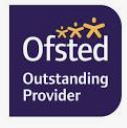Phonics & Reading
At The Willows our priority is both the teaching of reading skills and the enjoyment of literature, enabling children to become lifelong, confident readers. We believe that fluent reading is developed through language acquisition, inspiring a love of reading in our children, and through application of a secure knowledge of phonics.
 As our children begin to read, we focus on decoding through phonics. In order to provide a consistent approach to the teaching of reading, spelling and handwriting, we follow Phonics International. It is a systematic approach to teaching synthetic phonics where teachers take a planned, thorough approach, teaching children the simplest sounds first and progressing all the way through to the most complex combinations of letters. The Phonics International programme is divided into 12 units. The letter/s-sound correspondences featured on the Alphabetic Code Charts are introduced and revisited.
As our children begin to read, we focus on decoding through phonics. In order to provide a consistent approach to the teaching of reading, spelling and handwriting, we follow Phonics International. It is a systematic approach to teaching synthetic phonics where teachers take a planned, thorough approach, teaching children the simplest sounds first and progressing all the way through to the most complex combinations of letters. The Phonics International programme is divided into 12 units. The letter/s-sound correspondences featured on the Alphabetic Code Charts are introduced and revisited.
The Systematic Synthetic Phonics Teaching Principles
We teach the alphabetic code knowledge (the relationship, or links, between the smallest sounds of speech and the letters or letter groups) by systematically introducing the letter/s-sound for decoding and sound-to-print for encoding.
We model how to put the letter/s-sound correspondences introduced to immediate use with cumulative real written and spoken words, sentences and texts teaching the three core skills of decoding (reading), encoding (spelling) and handwriting.
Our teachers are enthusiastic about using the Phonics International Programme because they see how well the children are able to follow the routies for practising the core skills of reading, spelling and handwriting, working independently and making progress.
As our children build fluency, comprehension skills become the main area of focus. Both decoding and comprehension skills are necessary for confident and competent reading. We use the following strategies to improve comprehension skills. These include:
-
Prediction
-
Questioning
-
Clarifying
-
Summarising
-
Activating prior knowledge
We use PM Benchmark as our reading scheme to support reading development. We carefully match texts to a child's ability as well as sometimes set more challenging reading books according to capabilities. We also teach pupils how to work out and clarify the meanings of unknown words and words with more than one meaning.









